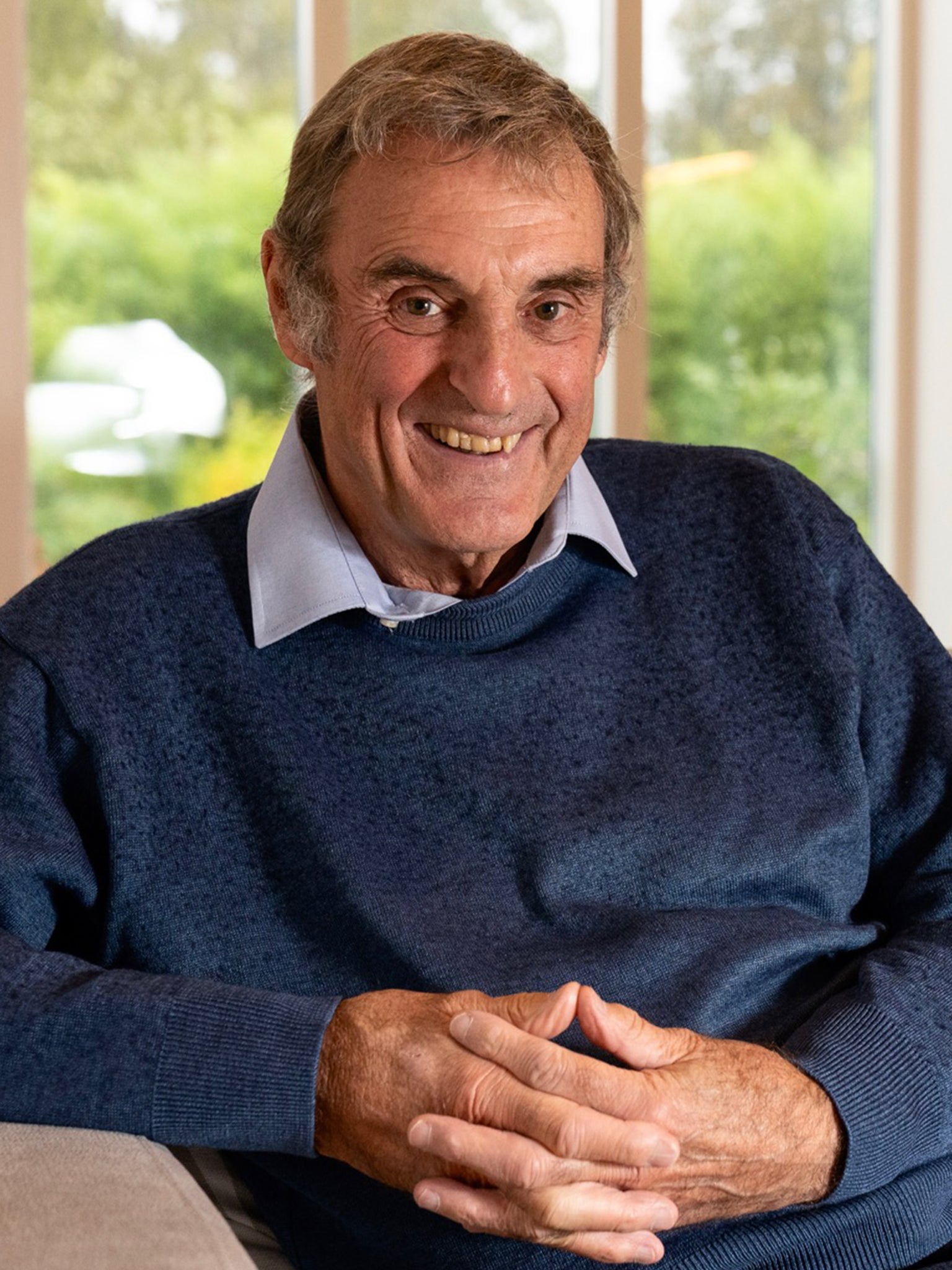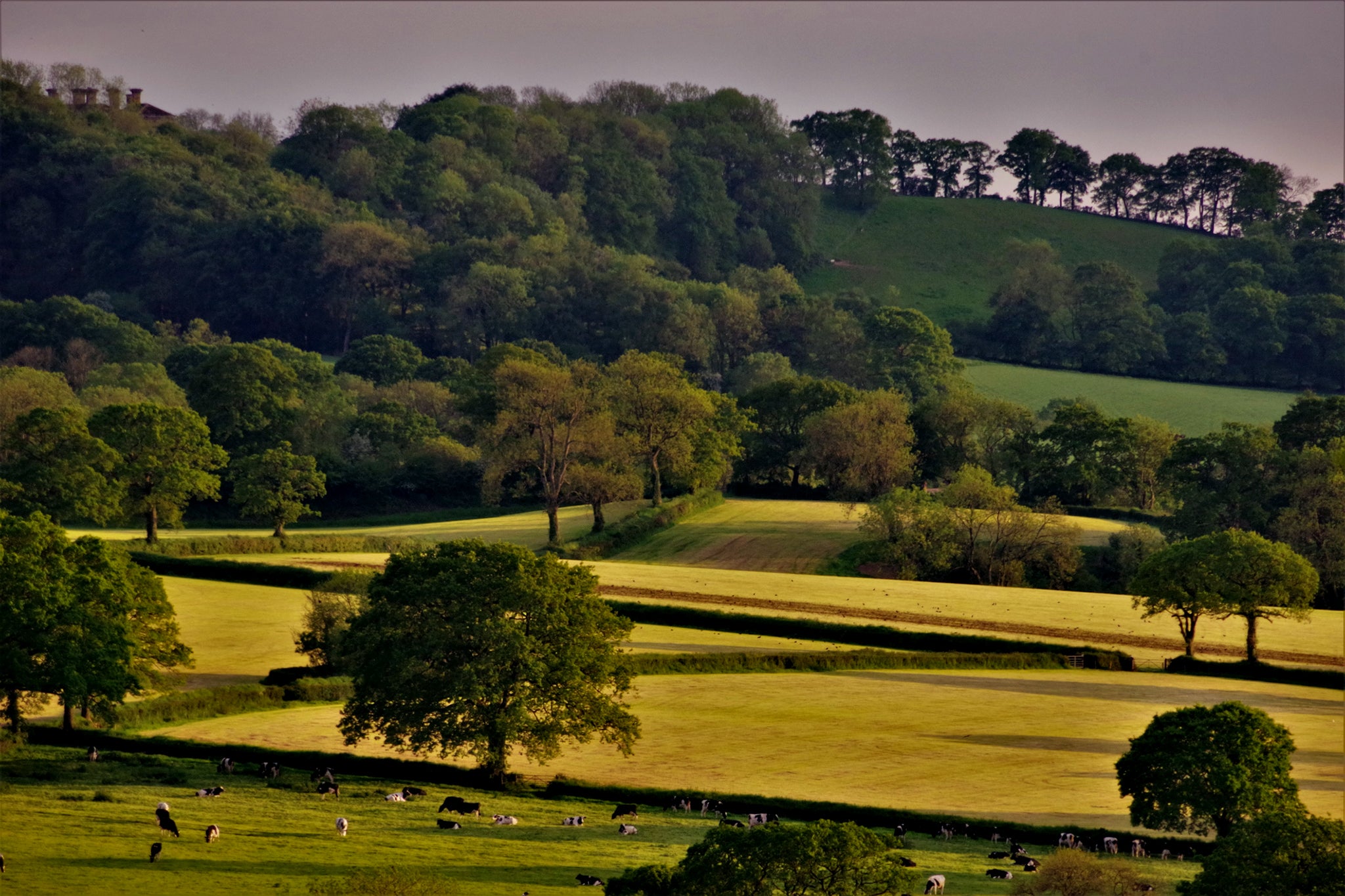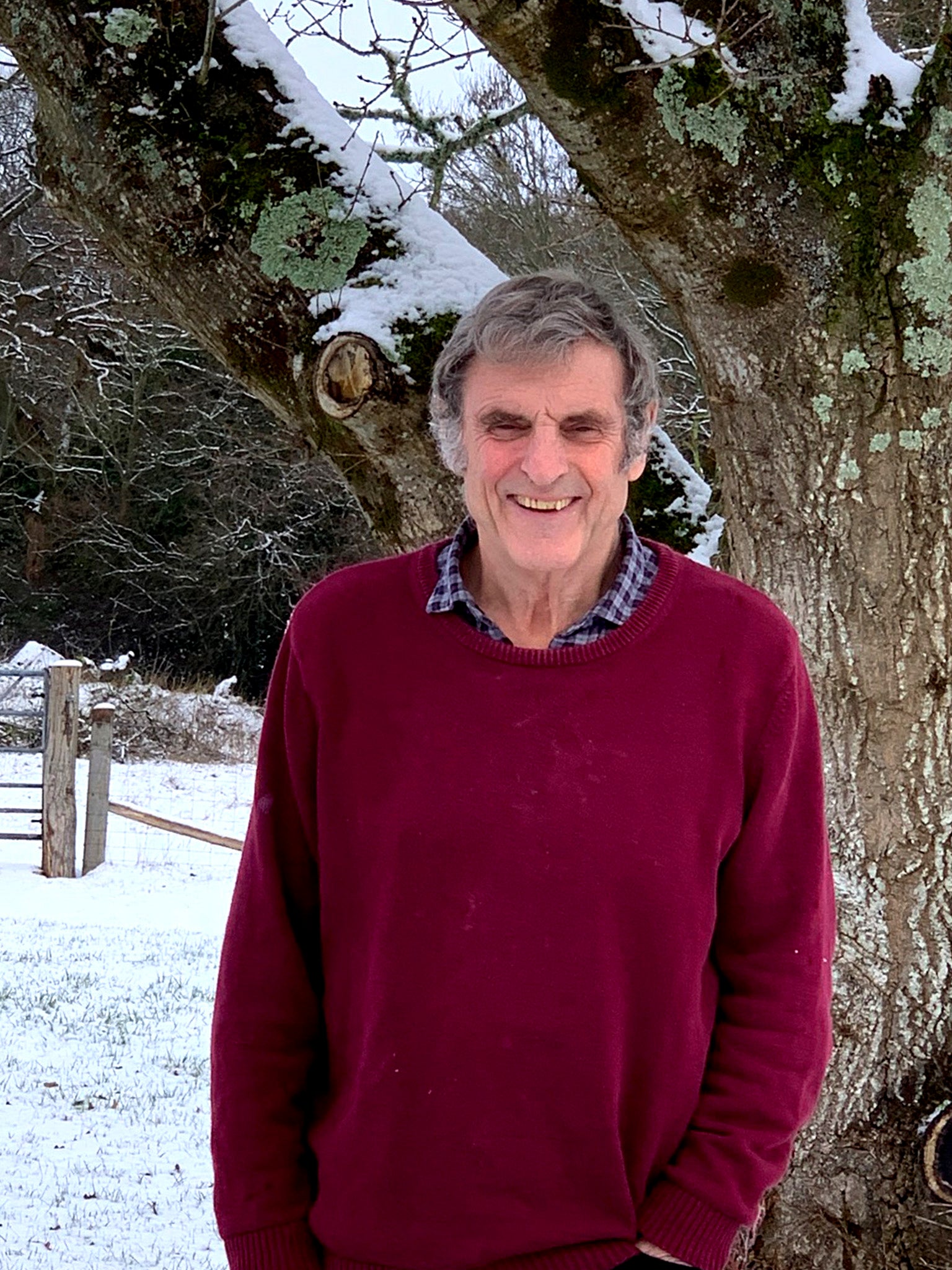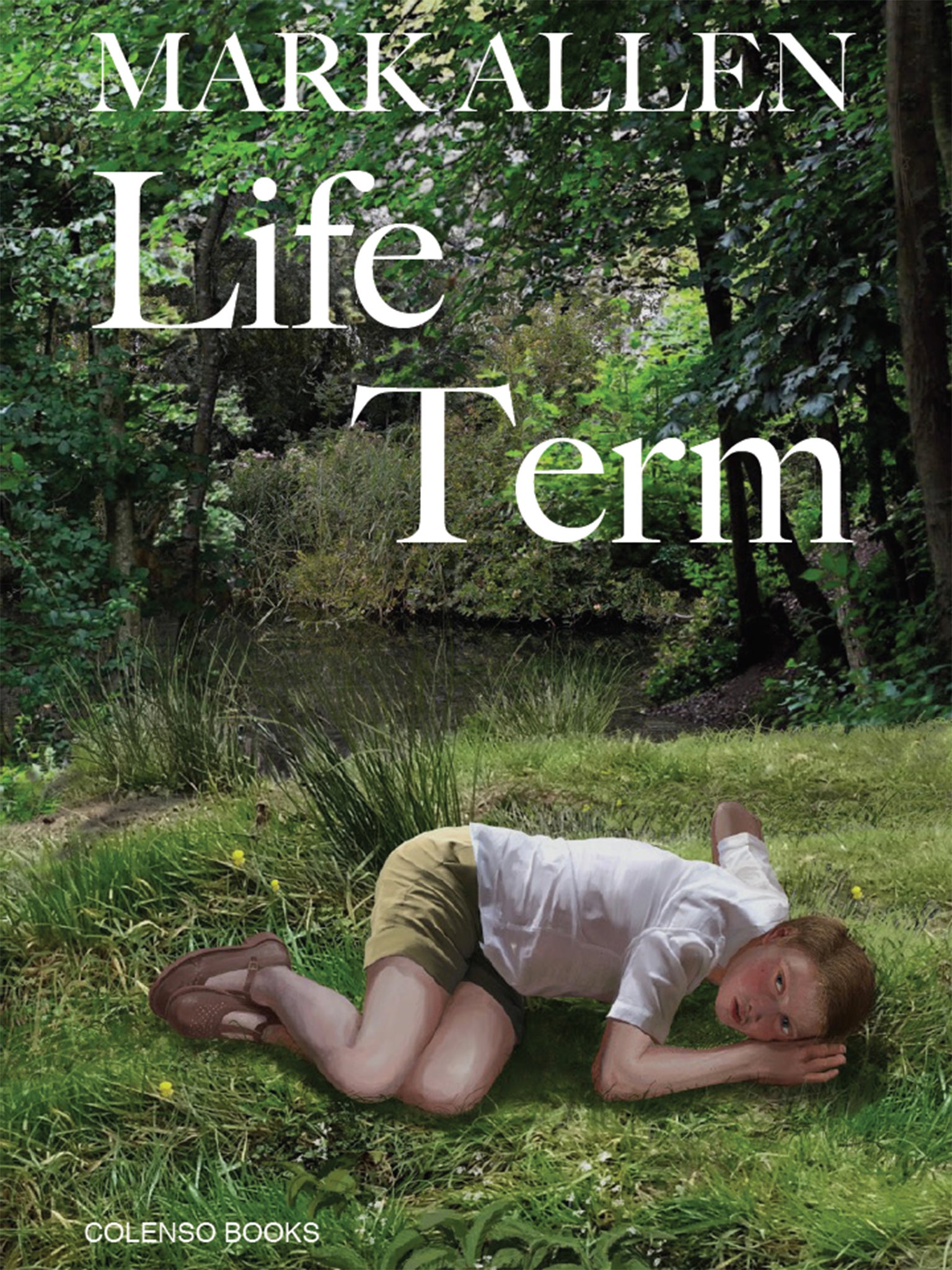How I came to terms with my sexual abuse
Mark Allen was six when he was assaulted. He chose to survive, overcome his dark past and turn his story into a novel. This extract speaks to his past aa well as issues of crime, revenge and retribution

As a businessman, Mark Allen has navigated his company through the pandemic crisis, not only surviving but thriving with record-breaking profits. As an entrepreneur, he’s nimbly pivoted his organisation into new modes of lockdown-era operation. And as a time-served media veteran who began his writing career as a journalist, working at the Sheffield Star and the Daily Express, he’s also found time to make his debut as a first-time novelist.
But before all that, Mark Allen was a child with a dark secret he couldn’t talk about. As a dreamy six-year-old in rural Somerset, with a chaotic and bohemian family background, he was sexually assaulted at random on a riverbank by a 21-year-old local man.
For some, that can mean a lifetime of pain, shame and trauma. But in his novel, Life Term, he’s proven that he can survive, overcome and, ultimately, alchemise abuse into a story worth telling and a novel worth reading.
“On one level, Life Term is a thriller with what I hope is a good plot. On another, it’s about crime, punishment, revenge, retribution and coming to terms with yourself,” concludes Allen. “It’s a psychological journey through life. But I’d like to believe that people will read it how they want to read it. I hope people will find it well written with an interesting story line which will also make them reflect on wider issues.”
***
The walk from Ivy Cottage, in the Somerset village of Ravington where my family lived, to the river Brue took less than 15 minutes. I was six years old and about to embark on a journey that would change my life, although I didn’t know it then.
As always, Ivy Cottage was full of noise and tension on that May day in 1954. My mother, Hannah Roberts, was trying to cope with the demands of my two siblings and me. Sarah was eight, two years older than me. My younger brother, Charles, was five. My mother was an academic and writer or had been in her previous “incarnation”. Living this poverty-stricken life in an isolated pocket of rural England in the frugal Fifties was certainly not how my mother had imagined her life panning out.
Read more:
It was about quarter past six in the evening when I left the house. I knew that neither of my parents would notice my absence because they were so wrapped up in their own troubles. Nevertheless, I can recall shutting the door of the cottage quietly before crossing the lane. I had made a habit of taking a walk at this time because I couldn’t stand the atmosphere in the house, which made me feel unwanted and lonely.
I can remember passing the council houses opposite our cottage.
I must have opened the small wicket gate that led into a large field decked in the yellow of wild flowers. Further ahead was another field where there were some 30 Friesian cows grazing near to a large gate, swishing their tails, waiting expectantly to be milked. I couldn’t help thinking that normally they would already have been collected by Farmer Butcher by this time and taken to the milking parlour of the farm, which was 300 yards away. Why the delay?

It had been a warm early summer day but now the heat had gone and in a couple of hours the sun would be going down. I loved being by myself at this time. While I always felt frightened inside the house because of my father’s volatility, and scared when I encountered other older boys from the village, I felt calm by myself in the open.
A flock of crows circled overhead as I took the path from the field into the wood of ash and oak trees. I enjoyed hearing the crunching sounds under my feet as I descended through the fields.
The river was now in full view. It was not a large river but I loved wandering along the bank looking out for trout and eels. On the opposite side I caught sight of a vole or water rat – wasn’t sure which – peering out of a hole in the bank. The day before, when I had come here a little earlier, I had been transfixed by the blue flash of a kingfisher, the first time I had ever spotted this bird.
I was caught up in my own imagination as I wandered by the riverbank, taking in all the sights and sounds. I wondered what it would be like to be a fish. They looked to be so much at peace as they circled in the water – a contrast to the turmoil that was part of my daily life at Ivy Cottage.
What happened to me on the riverbank is still something of a blur. Nor have I any memory of walking the short distance back to Ivy Cottage, although my mind and clothes were in a state of disarray
It was about seven o’clock when I came to my favourite spot. Carved into the bank was a clearing where I often liked to sit and reflect. Clouds were gathering and I thought I shouldn’t linger too much longer. Bedtime was always irregular and chaotic, but I should get back soon to avoid any arguments.
I sat down on a low branch of a tree in the clearing as I gathered my thoughts. It had been a long day. I hated the village school, where I was the butt of jokes made by many of the other 30 or so pupils at the school. The headteacher, Miss Glough, was vicious and horrid.
Suddenly my calm was disturbed by the presence of a man at my side. I hadn’t heard him coming and I knew he must have been very stealthy. I recognised him immediately. It was Vince Richardson, the 21-year-old son of Martha, who worked for my mother as a cleaner. He lived with his mother – his father was never to be seen – in one of the council houses which I had just passed. He had a troubling reputation.
Vince was a diabetic and had had frequent spells in mental hospitals. There was a rumour that he had been jailed for causing a train to crash, thankfully without harm to passengers, when he put a wheelbarrow across the tracks. Because he spent so much time in institutions, he was rarely in the village, but when he was, the more cautious villagers ensured their children stayed inside the safety of their houses.
Immediately my heart started to race and fear engulfed me. Vince approached me, his eyes shifting in all directions, a demonic smile on his face. Sensing danger, I stood up and as soon as I had done so he punched me hard in the midriff with his right hand. I fell to the ground clutching my stomach.

“Get up, you faggot,” he shouted, before lashing out again. Then Vince slowly and deliberately unbuttoned his trousers.
What happened to me on the riverbank is still something of a blur. Nor have I any memory of walking the short distance back to Ivy Cottage, although my mind and clothes were in a state of disarray. But I do recall that my mother was reading to Charles when I arrived home, in what must have been an agitated state.
I was tearful. I don’t know what I told my parents about what had happened, the full horror. My looks would have betrayed me because I became aware of angry conversations between my parents, my father blaming my mother for allowing me to roam free.
At some stage during the evening my father left the house, slamming the door as he announced, “I’m off to see Vince and Martha.”

Trapped in her own private world, my mother seemed oblivious to all the drama and distress. Looking back, I badly needed a hug, some loving support and reassurance from my mother, but none was forthcoming. My mother was never “touchy feely” and I can only remember kissing her once, a brief peck on her cheek, a few weeks before she died, aged 95.
An hour later my father returned in a surprisingly calm state of mind. He cleared his throat and announced: “I don’t think this is anything to get too het up about. It was a case of rough and tumble and it’s not worth going to the police.”
And that was that. The incident was locked away for good, never to be referred to again. Life returned to normal, or as near to normal as possible, although I remained inwardly traumatised by the abuse I suffered at Vince’s hands.
I vowed then that I would not allow the incident with Vince to destroy me: I was determined to use this experience positively in showing a greater empathy towards people
Confused and anxious, lonely and betrayed, I knew something dreadful had taken place, which had, initially, upset my parents. However, in my six-year-old mind, I was unable to place the incident in any context that made sense to me. It was only much later, in early adulthood, that I felt able to tell anyone about it. The incident became part of my secret life, isolating me from other people.
At 13, having passed my common entrance, I was sent as a boarder to Stourwater in Dorset. The school employed a psychiatrist who gave a lecture every year about sex to new boys entering the school. His name was Dr Matthews. His lecture was primarily intended as educational information about how babies were produced. However, his strictures about masturbation – “Don’t do it!” – and homosexuality could not be clearer.
“Most of you,” Dr Matthews opined, “will be going through puberty, which is a dangerous time for a boy. You may experience many temptations to experiment with another boy. On no account do so. If you have had any homosexual experiences of whatever kind, there’s a real chance of you becoming a habitual homosexual. Being a homosexual, sodomising another man, is about the most pernicious thing that you can do. Not only is homosexuality unlawful, it is evil; it is a dreadful, unnatural act. I hope none of you have gone, or will go down that terrible path.”
I rushed from the lecture in complete and utter panic. I hadn’t told a soul about the abuse and sex act Vince had performed on me when I was six, but now it was obvious. I must be a homosexual, which, according to Dr Matthews, was about the most awful thing you could be!

For the next few months, I found sleeping – always a problem for me throughout my life – impossible. I lost my appetite and I was unable to focus on work for more than a few minutes at a time. During lessons, my concentration would wane and my mind would become a complete fog, making it hard for me to retain information.
This whole unpleasant business with Vince, my mother rationalised, was deeply regrettable but there was a danger of exaggerating the significance of such an isolated incident. History was littered with prominent men who had been molested at school and it did not seem to make a lasting impression on them. And, anyway, what to do about it? That was the question to which my mother could provide no satisfactory answer. She thought it best to let matters rest.
My mother considered the police unimaginative and cloddish. If she and Martin had decided to report Vince, there was a danger that it would make matters even worse. Who would believe a six-year-old anyway? Furthermore, it would mean betraying Vince’s mother, Martha, who had been an enormous help to them – cleaning for them at Ivy Cottage after they had moved to Somerset from Yorkshire.
My father’s reaction to my abuse was complicated. He lacked the emotional capacity to focus on it to any meaningful extent. Of course, he felt empathy for me when he had seen me so traumatised. He was angry that this event should have occurred, which he partly blamed on my mother for being so lax in allowing us to behave like feral children, wandering the fields and roads almost at will. I am sure he would have given her grief over it.
He reasoned that, while Vince’s behaviour was totally unacceptable, these unseemly incidents happened all the time in inward-looking villages such as Ravington, where cases of incest and sexual experimentation were not uncommon. He would sort out Martha and Vince — and that would be that. He had enough worries as it was with his business.
When he confronted him, Vince told him a pack of lies, which partly satisfied my father, who wanted to put the matter to bed as quickly as possible. Nothing of any consequence had taken place on the riverbank, Vince assured him. Vince told my father that I had been having a piss when he had arrived by pure chance. They had larked round for a bit and then I had insisted on showing Vince my willy. “I told the little bugger to put it away and not be so bloody silly. He then started crying and rushed off. I think he was getting scared of the dark.”
Then Martha had said in a telling and ominous way: “No good will come of it, Mr Roberts, if you go to the police, that’s for sure.” And Martin had simply replied: “Don’t worry, Martha. It’s a closed book as far as I’m concerned. But make damn sure that Vince is never to be seen again.”

Inside my muddled brain I was still at sea. I finally realised that I was certainly not homosexual. Girls became my focus. I developed a largely platonic relationship with a girl at Stourwater’s sister school. The realisation that I was heterosexual came as a considerable relief to me and it was now only a matter of time before I felt ready to talk about the abuse which had plagued my life. I vowed then that I would not allow the incident with Vince to destroy me: I was determined to use this experience positively in showing a greater empathy towards people.
Mark Allen’s Life Term is available to purchase now on Amazon.co.uk
Join our commenting forum
Join thought-provoking conversations, follow other Independent readers and see their replies
Comments